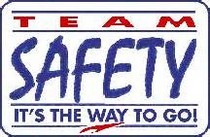
Greater Hamilton Safety Council
400 N Erie Blvd.
Hamilton, OH 45011
Phone: (513) 896-5333
Fax: (513) 896-5334
SAVE THE DATE!
JUNE 22, 2024 BOB GENTRY GOLF SCRAMBLE. ALL PROCEEDS GO TO OUR SAFETY TOWN PROGRAM THAT IS FREE TO ALL CHILDREN. SEE REGISTRATION FORM AND INFO BELOW
Adobe Acrobat document [328.0 KB]
TRAINING PROGRAMS
Train the Trainer and Employee Training Programs:
We will provide training designed to meet OSHA and other major agency requirements. These sessions are designed to be conducted onsite or at a location of your choice. Included in the costs are all workbooks, handouts, and other materials as needed. Training sessions can be scheduled during any shift at no additional charge. Costs can be kept to a minimum by grouping personnel and sites, thereby keeping the number of required sessions to a minimum. Future costs can be minimized by having one or more employees trained as an in-house training specialist to provide future training needs.
Safe Operation of Powered Industrial Trucks:
Written program, purpose, scope, enforcement policy, equipment inventory, training and re-training policies, rules, program evaluation.
Lockout/Tagout:
Written program, purpose, scope, enforcement policy, personnel assignments, general and specific procedures,
training, equipment inventory, equipment specific energy control procedures, program inspection.
Hazard Communication:
Written program, chemical inventory list, labeling system, material safety data sheets
(MSDS), training, special
procedures.
Injury and Illness Recordkeeping:
Written program, mechanics of the 200 log, accident reporting and recording procedures, multiple site recording, posting, retention, and correction procedures and training requirements.
Means of Egress, Fire Protection & Emergency Action Plans:
Written program, escape procedures and route assignments, critical operation procedures, accounting for personnel following evacuation, medical and rescue duties (if applicable), methods to report emergencies (differentiating between fire, tornadoes, etc.), type of alarm system(s), training for work force, fire prevention plan including identifying major fire hazards, ignition sources, and procedures for control, equipment and duties assignment, traing for work force.
Machine Guarding:
General requirements for all machines, woodworking machinery requirements, abrasive wheel machinery,
mechanical power presses, mechanical power-transmission apparatus.
Permit Required Confined Spaces:
General requirements, written program, permit system, entry permits, training and education, authorized entrant’s duties, attendant’s duties, entry supervisor’s duties, emergencies.
Electrical Safety:
Electrical protective devices, design safety standards for electrical systems, electric utilization systems, general requirements, wiring design and protection, wiring methods, components, and equipment for general use, specific purpose equipment and installations, hazardous (classified) locations, special systems.
Electrical Safety Related Work Practices:
Scope, training, selection and use of work practices, use of equipment, safeguards for personnel protection.
Mechanical Power Press Safety*:
General requirements, mechanical power press guarding and construction, general, safeguarding the point of operation, design, construction, setting and feeding of dies, inspection, maintenance, and modification of presses, operation of power presses, reports of injuries to employees operating mechanical power presses, presence sensing device initiation (PSDI).
Personal Protective Equipment:
General requirements, eye and face protection, respiratory protection, fit testing procedures, user seal check procedures, respiratory cleaning procedures, respirator medical evaluation questionnaire, information for employees using respirators when not required under standard, occupational foot protection, electrical protective devices, hand protection, respiratory protection for m. tuberculosis, non-mandatory compliance guidelines for hazard assessment and personal protective equipment selection.
Hazardous Materials:
Compressed gases (general requirements), hydrogen, oxygen, nitrous oxide, flammable and combustible liquids,
spray finishing using flammable and combustible materials, dip tanks containing flammable or combustible liquids, explosives and agents, storage and handling of liquified petroleum gases, compliance
guidelines and recommendations for process safety management, dipping and coating operations, coverage, general
requirements, additional requirements for dipping and coating operations that use flammable or combustible liquids.
Bloodborne Pathogens:
Scope and application, definitions, exposure control, exposure control plan, methods of compliance, HIV and HBV research laboratories and production facilities, Hepatitis B vaccination and post-exposure evaluation and follow-up, communication of hazards to employees, recordkeeping.
Welding, Cutting and Blazing:
General requirements, oxygen-fuel gas welding and cutting, arc welding and cutting, resistance welding.
Walking and Working Surfaces:
General requirements, guarding floor and wall openings and holes, fixed industrial stairs, portable wood and metal ladders, fixed ladders, safety requirements for scaffolding, manually propelled mobile ladder stands and scaffolds (towers).
Unless otherwise noted (*), the above training programs are presented in a time frame of two to four hours.
For fees or additional information, contact the Safety Council at 896-5333.

